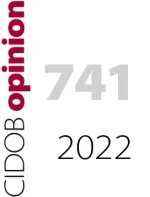Britain is a political and economic mess but comfortable in its skin

Since the demise of Margaret Thatcher as UK prime minister in 1990, the hardliners in the Conservative party have never accepted any compromises on Europe and have been the nemesis of successive prime ministers, most notably John Major, David Cameron and Theresa May. Boris Johnson’s lies eventually sunk him while the financial markets spooked Liz Truss more ruthlessly than any conservative cabal could dream of. How the new prime minister, Rishi Sunak, deals with the Tories’ hardliners while fixing the economic mess will be the defining challenge of the first steps of his mandate.
Hardliners must realise that Rishi Sunak is their last chance as no one will put up with another conservative leader without a general election. Current polls suggest a massive Labour party victory. Hence, hardliners may have to accept some compromises whether they like it or not. Rishi Sunak was in favour of Brexit, but he has already junked the silly pledge he made when running against Liz Truss last summer to “review and repeal” post-Brexit EU laws – all 2,400 of them, “in his first 100 days as prime minister”. He has adopted a more conciliatory tone with the French president than his two predecessors. How he holds together the warring factions of the Tory party as he faces the tension between what is needed to curb inflation and what is needed to kick start growth is the main challenge, he must confront.
Looking back over the past six years, it is tempting to dwell on the blunders and moral or political failings of successive occupiers of Number 10 Downing Street. The recent budget was ill judged and spoke of financial and economic illiteracy. It illustrated the short and absurd moment Liz Truss enjoyed in the footlights which could have been put to music in one of the brilliant operettas of Gilbert and Sullivan, those keen observers of the absurdity of Victorian life. Likewise, signing the Northern Ireland Protocol and then insisting it did not mean what the ink of the paper plainly said it looked like the lie it was. But the country had demanded Brexit and that could not be achieved without a fix to the problem of the Irish border.
Beyond the shenanigans of recent British politics, beneath the twists and turns that make Europeans wonder what has happened to British common sense, lies a truth that the British people, let alone the Conservative party are not yet willing to acknowledge because it would put the party – indeed Britain, to war with itself. When the UK decided to leave the EU, it could have stayed in the Single Market. But that was not politically possible because remaining as rule-taker while ceasing to be a rule-maker would have looked absurd. The escape route was a buccaneering rhetoric of slashing regulations, signing trade deals with all and sundry, while evoking Elizabethan Sea captains such as Sir Francis Drake, who famously defeated the Spanish Armada sent to invade England in 1588, and the glories of empire.
In the nation’s unconscious, it is slowly dawning on many people that agreeing to some form of associate membership with the Single Market is inevitable. Not yet maybe, not before even more economic suffering is inflicted on ordinary people. Such a view is unlikely to be articulated by Rishi Sunak, who was a keen Brexiteer or by the Labour leader, Sir Keir Starmer for fear of offending the millions of his party’s voters who voted for Brexit. But it will gain ground after the next general election.
Sunak’s background
Most conservatives welcomed Sunak as prime minister, insisting his background was irrelevant. On the Left many cautioned he was too rich to be representative. It is to the honour of the people of the United Kingdom however that they are increasingly comfortable with being a multicultural democracy. The hard right conservatives in France would balk at the idea of a prime minister of colour although senior politicians from minorities are much in evidence at senior government echelons today. In much of Europe many political parties pay lip service to diversity but fiercely resist it in practice.
Beyond Europe, many world leaders believe diversity leads to decay and resent Europe for pushing its values on them. Vladimir Putin complains that “national differences in nations and culture are being eroded” and believes more people are coming round to Russia’s “defence of traditional values”. The Russian leader wants to put his own tribe first – white heterosexual Russians, as do politicians such as Donald Trump and millions of Americans who belong to the moral majority. The Chinese Communist Party enforces Han culture with ruthless brutality. Narendra Modi wants to put Hindis first. In Muslim countries, Muslims come first.
Multiculturalism is not easy to practise socially or politically as modern social media exaggerate the smallest of differences but, in a global context where authoritarian rule in gaining ground every day, the fact that Number 10 Downing Street, the official residence of the prime minister of the United Kingdom for nearly three centuries, is today occupied by a man of Indian extraction, a man who hails from what was for a century and a half the Jewel of the Empire, surely speaks of a country at ease with itself, comfortable in its own skin, despite the woeful political mess of recent years.
Keywords: UK, Britain, Rishi Sunak, Tories, Conservative party, Brexit, Downing Street, British polítics